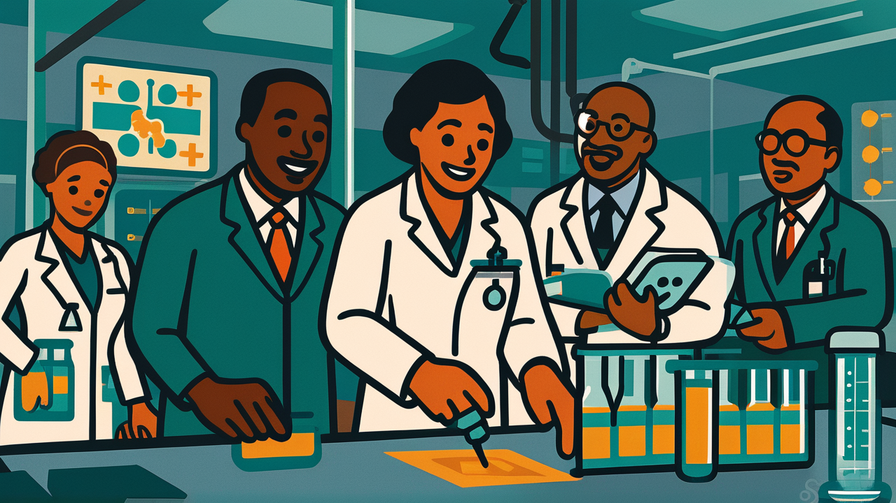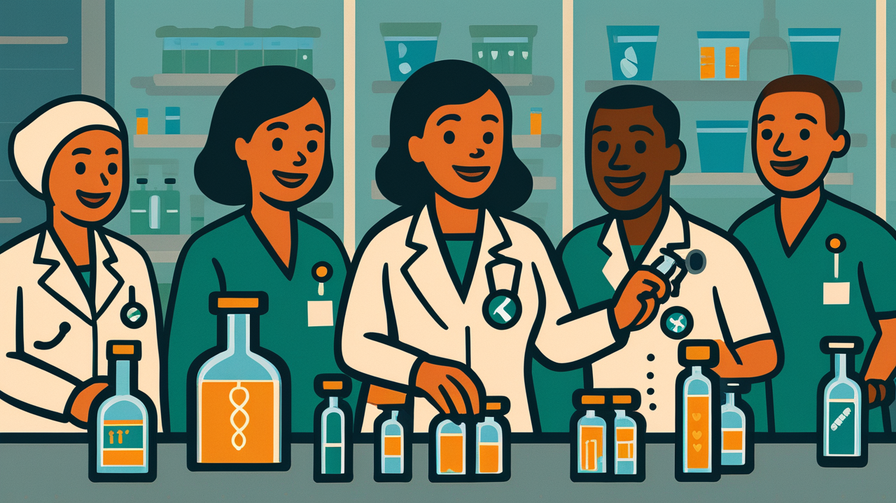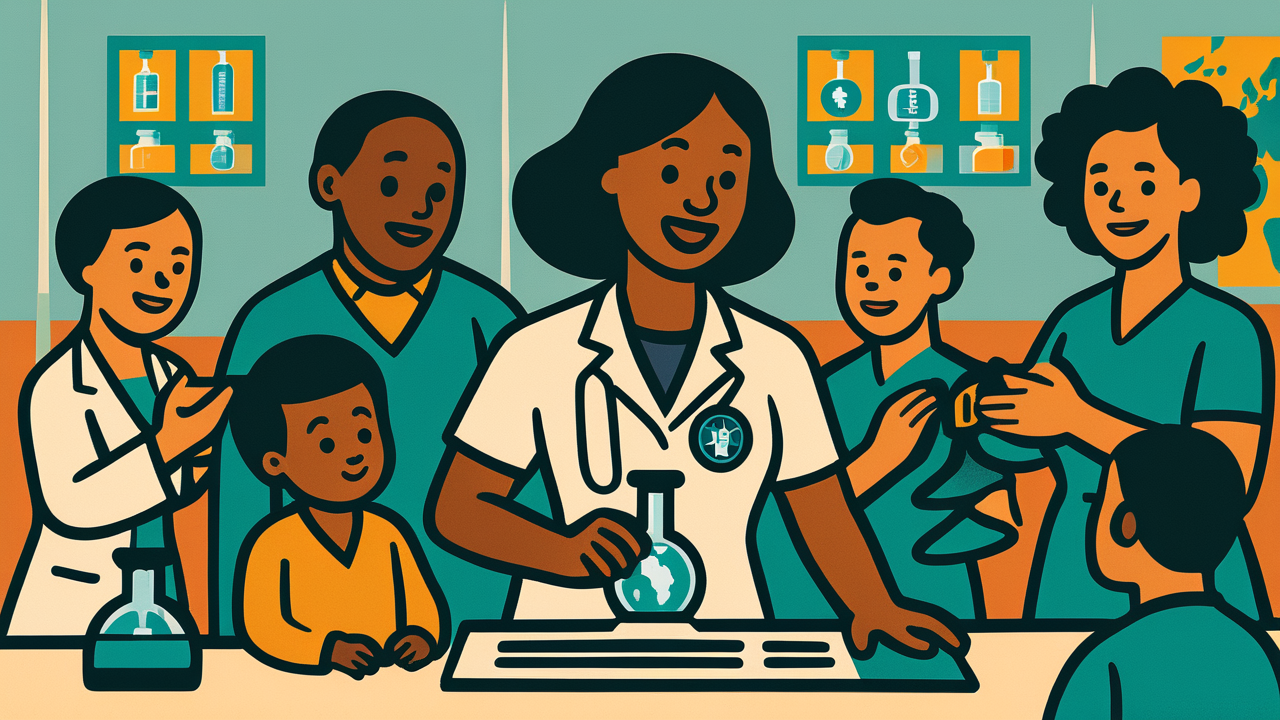[Disclaimer] This article is reconstructed based on information from external sources. Please verify the original source before referring to this content.
News Summary
The following content was published online. A translated summary is presented below. See the source for details.
African nations are accelerating efforts to establish local vaccine manufacturing capabilities following lessons learned from the COVID-19 pandemic. Currently, Africa imports 99% of its vaccines, leaving the continent vulnerable during global health emergencies. Several countries including South Africa, Rwanda, Senegal, and Egypt are building vaccine production facilities with support from international partners. The African Union has set an ambitious goal for the continent to manufacture 60% of its vaccine needs by 2040. Key initiatives include technology transfer hubs, training programs for scientists, and partnerships with established pharmaceutical companies. Despite challenges like limited infrastructure and funding, progress is being made with several facilities expected to begin production by 2026. This movement represents a crucial step toward health sovereignty and could save millions of lives in future pandemics.
Source: Global Voices
Our Commentary
Background and Context

For decades, Africa has depended almost entirely on imported vaccines, creating a dangerous vulnerability. When COVID-19 struck in 2020, this dependence became a life-or-death issue. While wealthy nations secured vaccines for their populations, African countries waited months for supplies. By the time vaccines arrived, new variants had already spread, and millions had suffered or died from preventable illness.
The problem goes beyond COVID-19. Africa bears 24% of the global disease burden but produces less than 1% of vaccines consumed on the continent. This means during any outbreak – whether it’s yellow fever, meningitis, or Ebola – African nations must compete on global markets where they’re often outbid by richer countries. The continent’s 1.3 billion people deserve better access to life-saving medicines.
Expert Analysis
Health economists calculate that local vaccine production could transform Africa’s health landscape. Currently, importing vaccines costs African governments approximately $1.5 billion annually, not including transportation and storage expenses. Local production would reduce costs by an estimated 40% while creating thousands of skilled jobs.
The technology transfer process is complex but achievable. It requires not just building factories but training scientists, establishing quality control systems, and meeting international safety standards. The World Health Organization’s mRNA technology transfer hub in South Africa serves as a model, teaching African scientists to produce COVID-19 vaccines using the same technology as Pfizer and Moderna vaccines.
Additional Data and Fact Reinforcement
Current vaccine manufacturing initiatives across Africa include:
• South Africa’s Biovac: Partnering with Pfizer to produce 100 million vaccine doses annually by 2026
• Rwanda’s BioNTech facility: First mRNA vaccine plant in Africa, breaking ground in 2022
• Senegal’s Institut Pasteur: Developing capacity to produce yellow fever and COVID-19 vaccines
• Egypt’s VACSERA: Expanding production to include multiple vaccine types
The African Union estimates that achieving 60% local vaccine production by 2040 would require $20 billion in investment and training for 25,000 specialized workers. While substantial, this investment would pay for itself within a decade through reduced import costs and improved health outcomes.
Related News
The push for vaccine manufacturing connects to broader African industrialization efforts. The African Continental Free Trade Area, launched in 2021, makes it easier to trade medical supplies between African countries. Meanwhile, the Africa CDC (Centers for Disease Control and Prevention) has established a continent-wide disease surveillance network to quickly identify and respond to outbreaks.
International support is growing. The European Union has pledged €1 billion to support African vaccine manufacturing, while the United States has committed to sharing vaccine technology through the WHO. However, some pharmaceutical companies remain reluctant to share proprietary information, citing concerns about intellectual property rights.
Summary

Africa’s quest to manufacture its own vaccines represents more than a health initiative – it’s about dignity, self-reliance, and saving lives. The COVID-19 pandemic exposed the deadly consequences of depending on others for essential medicines. Now, African nations are taking concrete steps to ensure they’re never again last in line for life-saving vaccines. Success will require sustained investment, international cooperation, and political will, but the potential benefits – millions of lives saved and a healthier, more prosperous continent – make this one of Africa’s most important development priorities.
Public Reaction
African health workers and citizens have expressed strong support for local vaccine production. Dr. John Nkengasong, former Africa CDC director, called it “a matter of life and death for our continent.” Social media campaigns with hashtags like #MadeInAfrica and #VaccineEquity have gained millions of supporters. Young African scientists are increasingly choosing to stay on the continent rather than emigrating, seeing opportunities in the growing biotech sector.
Frequently Asked Questions
Q: Why can’t Africa just keep importing vaccines like before?
A: The COVID-19 pandemic showed that during emergencies, rich countries buy up available vaccines first, leaving Africa waiting. Local production ensures vaccines are available when needed, reduces costs, and creates jobs. It’s like having your own water well instead of depending on neighbors during a drought.
Q: How long does it take to build a vaccine factory?
A: Building the physical facility takes 2-3 years, but creating a fully operational vaccine manufacturing system takes 5-7 years. This includes training staff, getting regulatory approvals, establishing supply chains, and meeting international quality standards. It’s like building not just a kitchen, but training chefs and creating entire recipes from scratch.
Q: Will African-made vaccines be as safe as imported ones?
A: Yes. All vaccines must meet the same strict international standards set by the World Health Organization, regardless of where they’re made. African facilities will undergo the same rigorous inspections and quality controls as factories in Europe or America. Several African countries already successfully produce other medicines that meet global standards.


